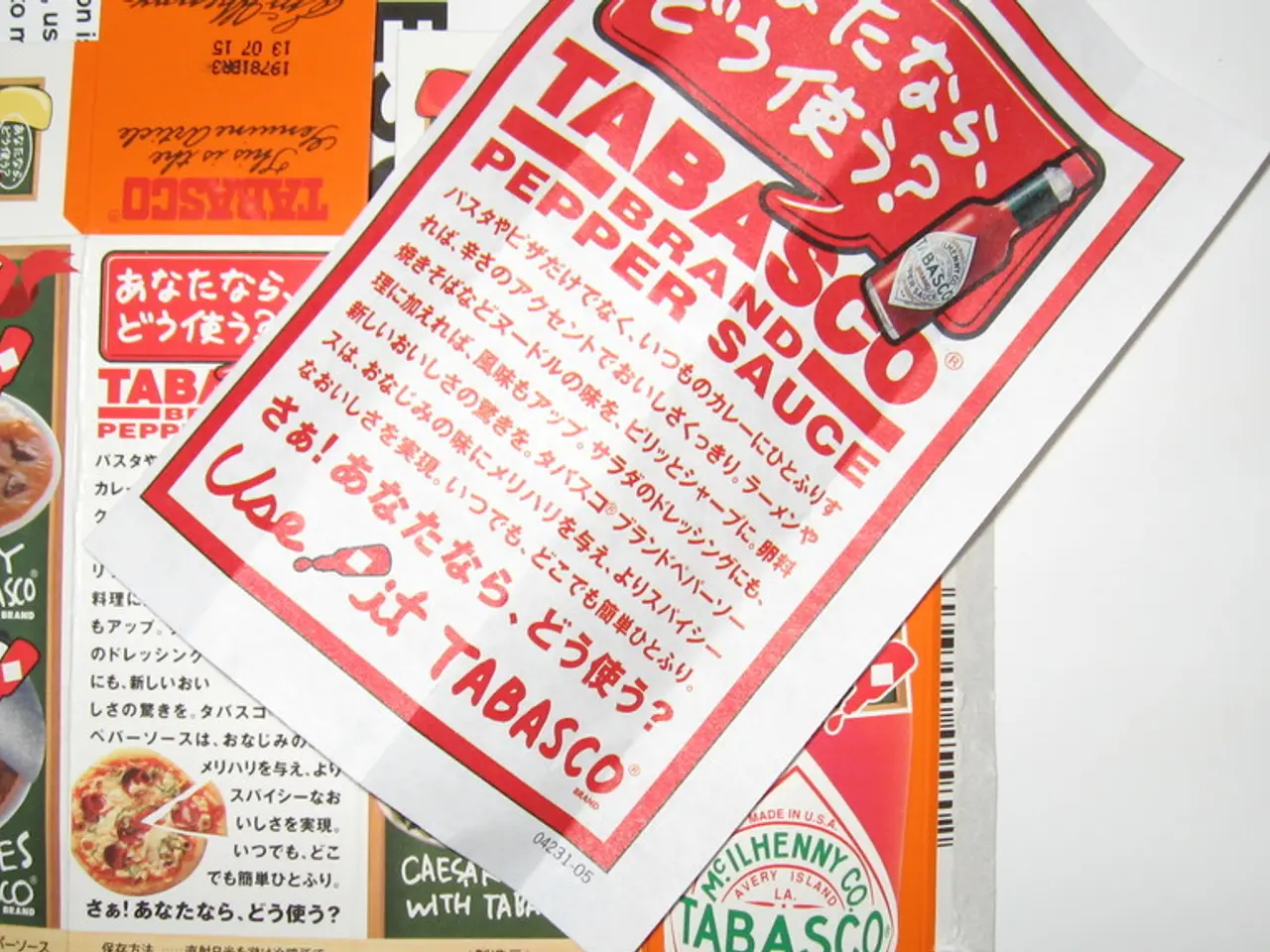Government emphasizes the importance of food industry adhering to ethical labeling and advertising practices in the production of food products.
India has taken a significant step towards ensuring consumer safety and promoting transparency in the food industry. On August 14, 2025, a National Stakeholder Consultation was held under the Ministry of Health and Family Welfare, with around 700 representatives from central and state government officials, scientific experts, food businesses, industry associations, consumer organizations, and academic institutions in attendance.
The focus of the consultation was 'Comprehensive Analysis of Regulatory Framework on Food Labelling, Advertisement and Claims.' The event was chaired by Punya Salila Srivastava, the Secretary of the Ministry of Health and Family Welfare, who emphasized the importance of ethical and truthful practices in labelling and advertising in the food sector.
Nidhi Khare, Secretary of the Department of Consumer Affairs, also attended the consultation and emphasized the importance of truthful and honest declarations in food labelling. She stated that food labelling should not be used as a marketing tool but as a factor of trust between a manufacturer and a consumer. Khare also asked the industry to make "truthful and honest declarations" and avoid misleading advertisements.
The consultation reaffirmed India's commitment to clear packaging, transparent labelling, and truthful claims, including visible expiry dates, meaningful nutrition labels, and restrictions on misleading advertisements. The key regulatory elements include Front-of-Pack Warning Labels (FOPL), Color-coded Symbols, Honest Marketing Claims, and Transparency.
The FSSAI is moving towards mandatory front-of-pack warning labels indicating high levels of fat, sugar, and salt to address growing health risks like obesity and lifestyle diseases. Vegetarian foods must display a green circle, and non-vegetarian foods a brown-filled triangle on pre-packaged products to help consumers identify dietary preferences easily. There is also a growing focus on ethical advertising where claims made in marketing must be scientifically validated and not misleading.
The key stakeholders involved in enforcing and shaping these ethical labeling and advertising practices are the Food Safety and Standards Authority of India (FSSAI), the Ministry of Health and Family Welfare, the Department of Consumer Affairs, State Food Safety Authorities, Food Industry and Manufacturers, Consumer Groups and Academia, and the Judiciary.
The consultation underscores India's commitment to consumer transparency, health protection, and truthful marketing. The coordinated action by government regulators, industry participants, consumer advocates, and the judiciary has solidified stricter and clearer norms in 2025, ensuring a safer and more informed food market for consumers.
- The consultation, held under the Ministry of Health and Family Welfare, aimed to analyze the regulatory framework related to food labelling, advertisement, and claims, highlighting the importance of truthful and honest practices in the food industry.
- The FSSAI is implementing mandatory front-of-pack warning labels to address health risks and encourage clear packaging and transparency, with vegetarian foods displaying a green circle and non-vegetarian foods a brown-filled triangle.
- Apart from the FSSAI, key stakeholders involved in enforcing and shaping these ethical labeling and advertising practices include the Ministry of Health and Family Welfare, Department of Consumer Affairs, State Food Safety Authorities, Food Industry and Manufacturers, Consumer Groups, Academia, and the Judiciary.
- With stronger regulations and a cooperative effort among government regulators, industry participants, consumer advocates, and the judiciary, India has fortified clearer norms in 2025, promoting consumer safety, transparency, and truthful marketing within the food business and related industries.




